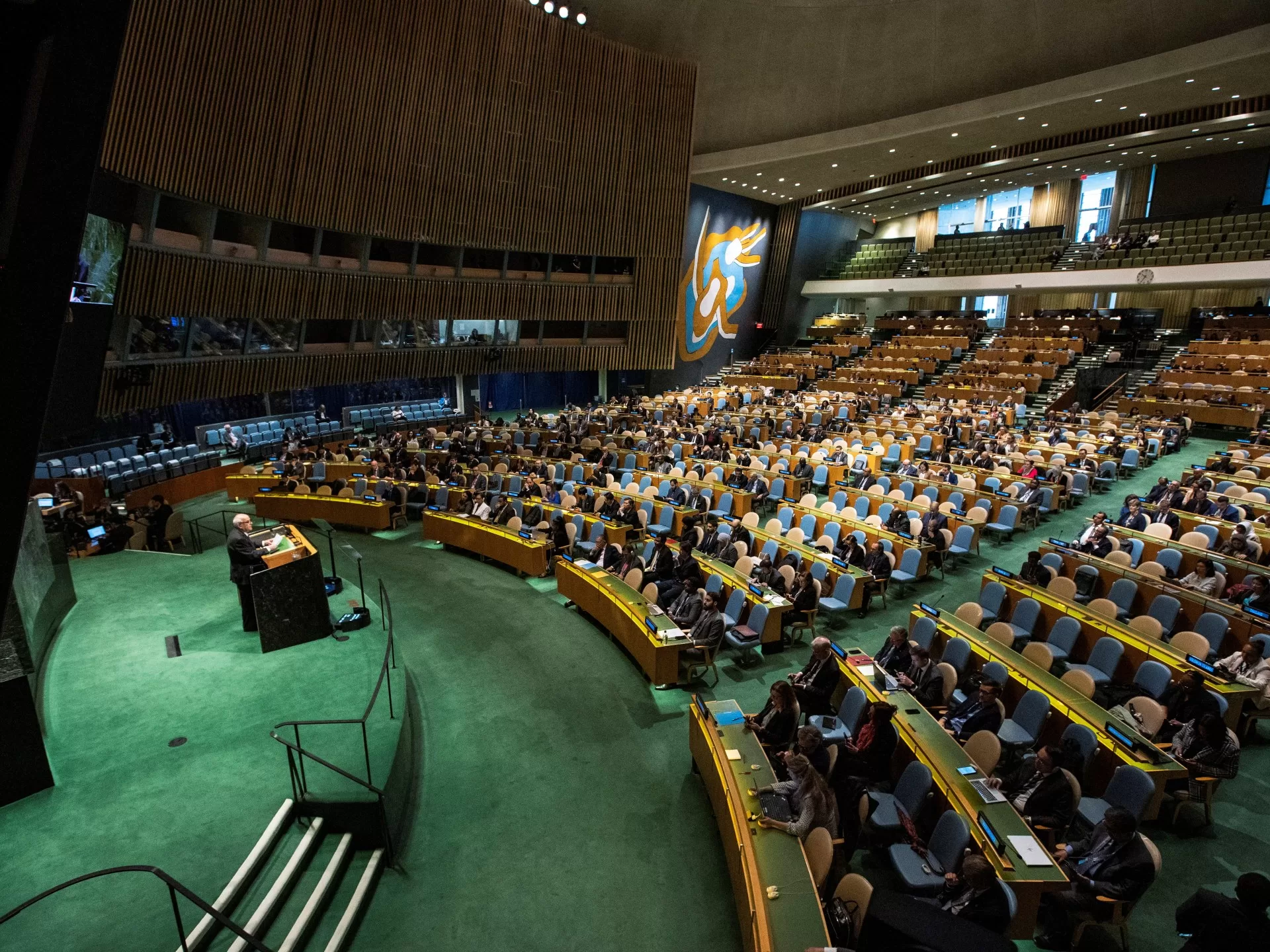The actions the draft resolution lays out – including condemnation of genocide denial and prohibiting glorification of war criminals – are undeniably important and necessary.
The proposal to have an official day of commemorating the Bosnian genocide comes amid historical revisionist efforts by officials of Republika Srpska, one of the post-war entities that falls within the borders of Bosnia and Herzegovina.
The Republika Srpska authorities have tried to whitewash and cover up war crimes committed by Serb forces in the Bosnian war, including the massacre of 8,372 Muslim men and boys in Srebrenica, then a designated UN safe zone. Its president, Milorad Dodik, has also engaged in various provocations, threatening the stability and territorial integrity of Bosnia.
However, the timing and sponsors of this submission to the UNGA raise troubling questions that need to be addressed. Why has it taken countries like Germany and the US so long to come up with this resolution? And why are they pushing for it now, as they stand accused of complicity in what the International Court of Justice (ICJ) has described as “plausible genocide”?
For years, the US and Germany – as well as other European countries – have ignored appeals from Bosnia to act on threats to stability and genocide denial emanating from Republika Srpska. They have even appeared to appease it, as well as its backer, the Serbian government, amid the tug-of-war with Russia over Serbia’s future with the European Union and its position on Ukraine.
At the same time, they are credible and persuasive arguments that both the US and Germany have become complicit in the Gaza genocide by providing direct military, economic and diplomatic support for Israel.
Just last month, the US Congress passed legislation that secured $17bn in military aid for Israel. As of March, the US had sent more than 100 weapons shipments destined for the Israeli army. Last year, Germany approved $354m worth of arms sales to Israel, a tenfold increase compared to 2022 – the increase being driven by exports after October 7.
The US and German governments have continued arming Israel despite facing legal challenges and criticism at home. In February, a US judge found that “the ongoing military siege in Gaza is intended to eradicate a whole people and therefore plausibly falls within the international prohibition against genocide”, but had to dismiss a lawsuit against US President Joe Biden and other officials for complicity in genocide over jurisdiction issues.
Germany has had to appear before the ICJ to defend its exports of weapons to Israel after Nicaragua accused it of complicity in genocide. Although the court did not impose a ban on these sales, it ruled that it has jurisdiction and the case should proceed.
Meanwhile, a group of German lawyers, representing Gaza Palestinian families, have filed a criminal complaint against German officials – including Chancellor Olaf Scholz – for supplying Israel with weapons that they say aid and abet Israel’s ongoing genocide in their homeland.
The US and Germany have also seen a wave of protests and occupations led by students in solidarity with the Palestinian people and in condemnation of their governments’ support for genocide. Students in both countries have faced violent crackdowns, as US and German authorities have sought to criminalise any criticism of Israel and slander those exercising their right to peaceful protest and freedom of speech.
Of course, the German and US governments deny that what is happening in Gaza is a genocide. Both have intervened on the side of Israel in the case that South Africa brought before the ICJ.
One has to wonder what is the point then of passing a resolution on commemorating a genocide while denying another is taking place. Remembrance is not just about keeping the memory of the victims of an atrocity alive but also about making sure it does not repeat. Germany and the US are rendering the resolution meaningless with their actions on Gaza. Worse, they are undermining and betraying the Geneva Conventions and international human rights law.
Germany and the US are essentially politicising genocide. With their stance on Gaza, they are basically saying that none of their allies can be accused of committing genocide. This allows for any government, any group to get away with this abominable crime, provided that they have the “right” alliances.
Shakespeare has said that “All the world’s a stage. And, all the men and women merely players.” In this genocidal tragedy, we seem to be in the final act: impunity. With their performance on the global stage, the US, Germany and other powers are ensuring impunity for Israel, but also for future genocidaires.
The views expressed in this article are the author’s own and do not necessarily reflect Al Jazeera’s editorial stance.
